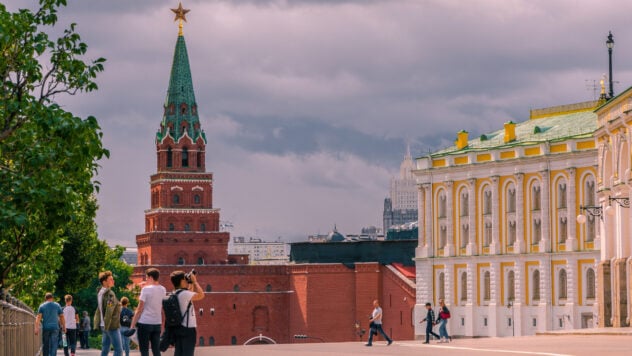
Russia's decade-long status as the arbiter of the Middle East is coming to an end.
This was reported by Foreign Policy.
It is indicated that since 2012, Russia has strengthened its position in the region. Later, with its military intervention in Syria, Moscow took center stage in regional diplomacy from Ankara to Riyadh and Cairo.
Currently watching
“Moscow has used its new presence in the region to position itself as an alternative to the United States, using dissatisfaction with Washington to increase its influence,” the material says.
Russia's interest-based approach and skillful diplomacy have helped it successfully overcome regional differences. Russian policy has been pragmatic and even cynical, without reference to ideology or values such as democracy.
Russia was able to simultaneously improve ties with Iran, Israel and Saudi Arabia. She managed to attract the Turkish government and Kurdish groups in Syria, while deftly avoiding the criticism Ankara leveled at Washington.
However, Russia's full-scale invasion of Ukraine in February 2022 began the gradual erosion of the Kremlin's influence in the Middle East.
First, Russia's unprovoked attack tarnished its international standing, making it a less attractive alternative to play with Washington.
Secondly, Moscow’s leverage in relations with key states in the region has also changed to the opposite.
Want to rest? Come to Facti.GAMES!
While Russia was previously able to impose painful sanctions on Turkey in response to the downing of a Russian fighter jet in 2015 and eventually force Erdogan to apologize, Russia now relies on Turkey as a conduit for the transit of goods to circumvent Western sanctions.
— Russian planes now fly through Istanbul and Dubai to avoid restrictions in European airspace. Moscow is buying Iranian-made armed drones and is even building a factory in Russia to produce Iranian-licensed drones, writes Foreign Policy.
Finally, Moscow has weakened its military and security presence in the Middle East. While Russia still maintains a key naval and air base in Syria, it has reduced some of its forces there to support military operations in Ukraine.
The publication writes that Hamas' brutal attack on Israeli civilians and Israel's harsh response will likely mark a point of no return for Russia's waning influence in the Middle East. Russian-Israeli relations were already strained by Russia's invasion of Ukraine, but Putin's response to the Gaza crisis has likely made matters worse. While blaming US policy, Moscow refrained from directly condemning the Hamas attack.
The importance Moscow has had in the past as a mediator between Palestinian factions is also likely to diminish. Even if Hamas manages to survive Israel's ongoing ground incursion into Gaza, intra-Palestinian reconciliation may not be a priority for the Middle East peace process for the foreseeable future.
The war between Israel and Hamas could also make it more difficult for Russia to navigate regional rivalries, especially given its warming relations with Tehran. While Moscow would likely prefer to avoid choosing sides between Israel and Iran, the Kremlin will need to decide whether Iranian weapons are more important to Russia, or whether the priority is to maintain influence with Israel to persuade it to refuse to provide weapons to Ukraine.
“Ultimately, the crisis caused by Hamas's widespread attack on Israel may help determine the future of the Middle East. Moscow, however, is unlikely to be able to play a significant role in shaping it – if at all… The future trajectory of the Middle East is likely to be determined by the Gaza crisis without any significant intervention from Moscow, Foreign Policy concludes.
Earlier, the Israeli Army discovered a rocket production laboratory, weapons and an entrance to a tunnel in a mosque in Gaza City.

